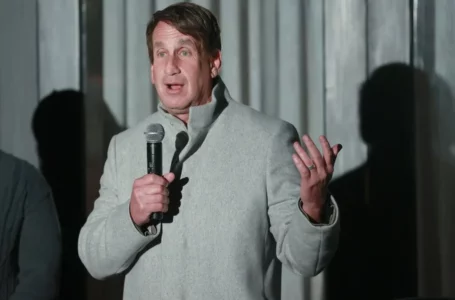Law360 (April 2, 2018, 3:40 PM EDT) — The Ninth Circuit shot down a boutique Hollywood talent agency’s fourth attempt to amend its antitrust complaint against major firms United Talent Agency Inc. and ICM Partners Inc. on Friday, finding the company had not plausibly alleged a conspiracy.
The panel shot down the appeal of Lenhoff Enterprises Inc., doing business as Lenhoff & Lenhoff, which was trying to reverse a district court decision that denied its attempt at a fourth amended complaint. The judges wrote that Lenhoff had not provided enough to back up its allegations that UTA and ICM, along with fellow “Big Four” agencies William Morris Endeavor Entertainment and Creative Artists Agency, which aren’t named in the suit, conspired to corner the television market and “Lenhoff provides no reason to suppose further amendment would be anything but futile.”
Lenhoff had been trying for years to advance its claims that the four agencies had worked together to corner the television market by offering exclusive “packaging” deals to actors that eliminate the 10 percent commissions typically charged by smaller agencies. The Ninth Circuit, however, has found that even with multiple amendments to its original complaint that “at best, Lenhoff’s third amended complaint pleads parallel conduct without alleging the ‘something more’ required to state a claim.”
The Ninth Circuit panel found multiple problems with Lenhoff’s claims — ranging from a lack of allegations of clear agreement between the parties to the company not putting its appeal of its motion for reconsideration properly before the panel. The panel wrote that the biggest problem for both its federal and state law claims came from its lack of the next step that would show any kind of agreement as a basis for the alleged conspiracy.
“More fundamentally, the complaint nowhere pleads the evidentiary facts that would nudge its claim across the line from conceivable to plausible,” the decision said.
Also, the alleged activity of a trade organization, Association of Talent Agents, mentioned by Lenhoff did not rise to the level of antitrust violation, the panel said. Similarly, the panel wrote the data Lenhoff provided about agreements among the “Uber” agencies actually went the opposite direction, showing that the four occasionally had agreements with smaller firms.
Overall the panel affirmed the 2016 decision by U.S. District Judge Beverly Reid O’Connell to dismiss Lenhoff’s thrice-amended antitrust suit for failing to plead particularized details of violations of Section 1 of the Sherman Act, unfair competition and unlawful business practices, among other claims, saying the boutique agency relied only on circumstantial evidence.
That dismissal led to the instant appeal.
An attorney for UTA, Steven A. Marenberg, said the firm was “gratified, but not surprised” by the Ninth Circuit’s holding in the case.
“UTA has consistently maintained that it has never acted unlawfully as the district court and the Ninth Circuit have so found,” Marenberg said.
Lenhoff’s February 2015 suit was revised three times following previous rulings from the court that allowed it to correct deficiencies. The basis of the suit was that the Big Four talent firms strategically caused the February 2002 expiration of a rule in the Association of Talent Agents-Screen Actors Guild agreement that prohibited an agency from possessing a financial interest in a production or distribution company or from accepting outside investments.
This rule expiration, Lenhoff claimed, enabled the Big Four to enter into the packaging deals with studios and production companies that resulted in luring talent and business away from smaller agencies like Lenhoff.
The suit specifically alleged that UTA and ICM executives conspired during strategic planning committee meetings with Association of Talent Agents’ representatives to cause the rule to expire without ushering in a new version.
Through their actions, the complaint alleged, UTA and ICM, in conjunction with William Morris and CAA, could rein in a significant portion of the scripted series packaging market by luring talent away from smaller firms by excising the 10 percent commission fee and splitting packaging fees among one another to form “a cartel” that controlled that market.
Counsel for the plaintiffs and ICM could not be immediately reached for comment Monday.
U.S. Circuit Judges Marsha S. Berzon and Jay S. Bybee and U.S. District Judge Sharon L. Gleason, sitting by designation, sat on the panel for the Ninth Circuit.
Lenhoff is represented by Gretchen M. Nelson and Gabriel S. Barenfeld of Nelson & Fraenkell LLP.
UTA is represented by Steven A. Marenberg and Stephen Payne of Irell & Manella LLP and Bryan J. Freedman, Sean Hardy and David M. Marmorstein of Freedman & Taitelman LLP.
ICM Partners is represented by Kathleen O’Sullivan, Eric J. Weiss and Chuck Samel of Perkins Coie LLP and Michael B. Garfinkel of DLA Piper.
The case is Lenhoff Enterprises Inc. v. United Talent Agency Inc. et al., case number 2:15-cv-01086, in the U.S. District Court for the Central District of California.




![Embattled "Bachelor" host Chris Harrison has lawyered up, but it's unclear what legal actions will be taken. [Credit: Getty Images]](https://ftllp.com/wp-content/uploads/2021/03/chris-harrison-4-455x300.jpeg)
